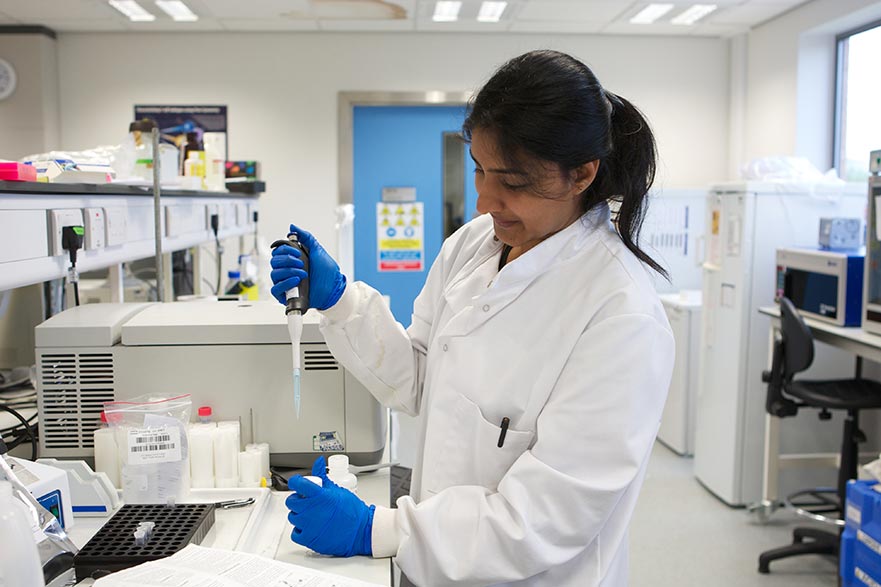Overview
Prostate cancer (PCa) is the most common malignancy and the second leading cause of cancer death in men in the UK. The high co-occurrence of depression in PCa adversely affects quality-of-life, disease course and survival. This is not explained solely by having to face a serious illness, but likely reflects shared physiological risk mechanisms such as chronic inflammation, which is regulated by fatty acids (FAs) and gut function. Our pilot work assessed depression and inflammation in men with PCa (n=30) and those with no known disease (n=10). Although preliminary analysis showed higher general depression in PCa, these scores were not related to blood markers of inflammation. Rather, it was a specific type of depression (that relates to dysfunctional attitude towards self) which was related to raised inflammation (as assessed by blood concentrations of tumour necrosis factor, TNF-alpha). No group differences or significant associations with inflammation were seen for anhedonia (i.e. lack of pleasure). We need to confirm and extend these results in a larger and more defined group (n=260) and learn more about the nature of depression in PCa relative to benign disease, before proceeding with the evaluation of interventions. More specifically, we aim to compare distinct aspects of depression (cognitive inflexibility, hopelessness, anhedonia, rumination and harsh self-judgement) in men recently diagnosed with PCa, relative to those with benign prostate disease. Additionally, we will investigate inflammation, gut-permeability and FA profile as mechanisms underpinning depression in these two groups (PCa, benign disease). Clarifying the relationship between depression, inflammation, gut-permeability and FA status, would allow more effective evaluation of physiological (e.g., nutritional) and psychological (depression management) interventions to prevent/attenuate adverse effects of chronic inflammation and depression on PCa, improving overall well-being.
Director of Studies
Dr Stéphanie McArdle, John van Geest Cancer Research Centre, Nottingham Trent University, Nottingham, UK (stephanie.mcardle@ntu.ac.uk)
And Dr Alexander Sumich, NTU Psychology Nottingham Trent University, Nottingham, UK (alexander.sumich@ntu.ac.uk)
NTU collaborators: Dr Murrium Ahmad, Dr Nadja Heym, Dr Nitin Seetolhul.
External Collaborators: Mr. Masood Khan.
Staff profiles
Entry qualifications
Applicants should hold, or be expected to hold, an UK Master’s degree (or UK equivalent according to NARIC) with a minimum of a commendation, and/or a UK 1stClass / 2.1 Bachelor’s Honour’s Degree (or UK equivalent according to NARIC) in Cell Biology, Biochemistry, Molecular Biology, or a related Biosciences related subject.
How to apply
Please visit our how to apply page for a step-by-step guide and make an application.
Applications are open all year round.
Research degree start dates
Our PhD and MPhil research degrees start on four fixed dates through the year. To be considered for admission to PhD and MPhil research degree course at Nottingham Trent University to start on one of these dates you must apply by the relevant application deadline shown below:
1 October, apply by 28 June
5 January, apply by 02 October the previous calendar year
27 June, apply by 02 April
1 April, apply by 10 January
Fees and funding
This opportunity is for self-funded PhD students. Applicants are encouraged to apply for external funding and we will support this process if and when required. Find out about fees and funding for PhD projects.
Guidance and support
Find out about guidance and support for PhD students.
